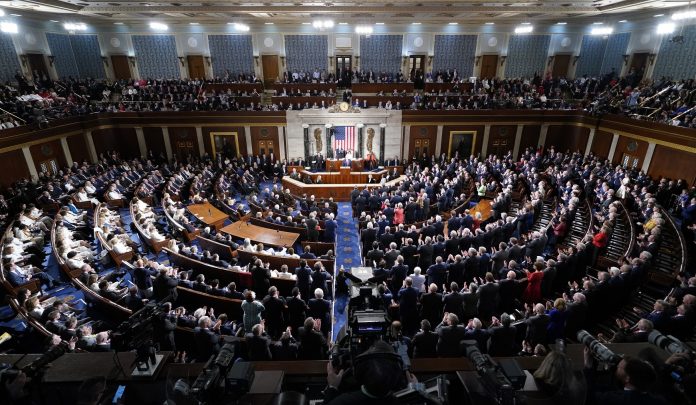The US Senate is expected to vote in the coming days on whether to override President Donald Trump’s veto of an annual defence policy bill, potentially dealing Trump his first veto override and putting Republicans in the unfamiliar position of publicly bucking the president.
Senate Republicans are in a political bind after a bipartisan majority in the House of Representatives approved an increase in stimulus cheques sought by President Donald Trump to $2,000 per US citizen.
Senate Majority Leader Mitch McConnell on Tuesday was unable to get quick consent in the Senate to move forward with a veto override as Democrats sought to pressure Republicans to add another $484 bn in direct stimulus payments to US citizens. Acknowledging “the president would like further direct financial support for American households”, McConnell declined to allow a Senate vote on increasing COVID-19 relief cheques to $2,000 per person. Instead, McConnell said he would move to force a vote on the defence bill by the end of the week.
“For the brave men and women of the United States Armed Forces, failure is simply not an option. So, when it’s our turn in Congress to have their backs failure is not an option either,” McConnell said.
Senator Bernie Sanders, an independent who has championed higher direct payments to Americans, on Tuesday followed through on a threat to block the Senate from moving quickly to override Trump’s veto.
“The working class of this country today faces more economic desperation than any time since the Great Depression of the 1930s and working families need help now. Not next year. But right now,” Sanders said.
The US House voted 322-87, including 109 Republicans, to override the veto Monday – easily clearing the two-thirds vote threshold needed. The bill originally passed the Senate 84-13 earlier this month, well above the 67 votes needed for an override.
Senate Republican leaders have been silent on where they stand on Trump’s $2,000 direct payment idea. He surprised Congress with it last week and delayed signing a pandemic relief bill while complaining about the “measly” $600 payment included in the bill.
The House voted to increase the direct payments Monday, with overwhelming support from Democrats.
It is unclear whether Senate Republicans will take up the issue as many conservatives oppose larger payments, despite Trump’s support for the idea, arguing that they will add hundreds of billions of dollars to the federal government’s pandemic relief costs.
Some Senate Republicans, however, have expressed support for the increase, including Florida Senator Marco Rubio, Missouri Senator Josh Hawley, and Georgia Senators David Perdue and Kelly Loeffler, who are up for election next week in two runoffs that will determine which party controls the Senate next year.
Source : News Agencies







